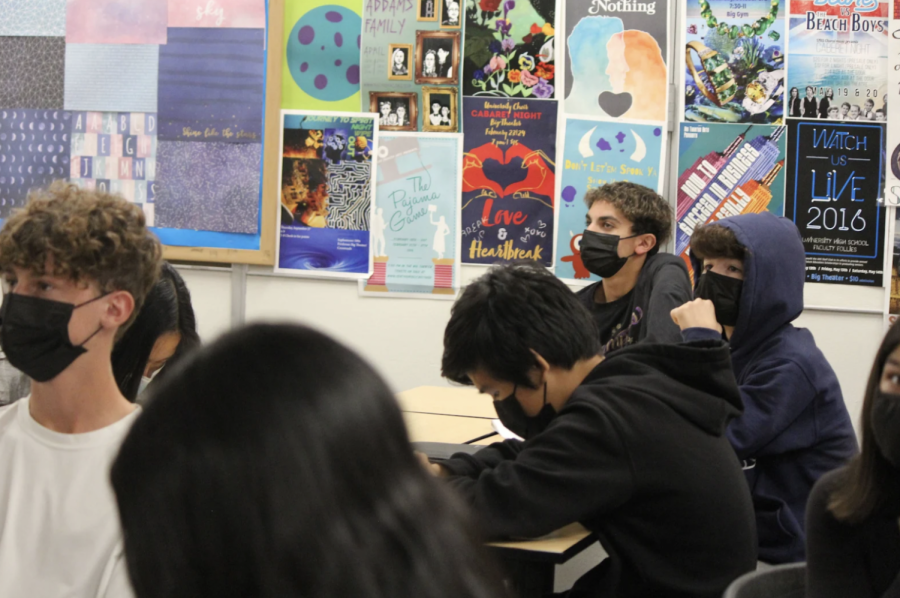Facebook Exposed for Hiding Research Findings of Harmful Effects on Teens’ Mental Health
December 1, 2021
Former Facebook product manager, Frances Haugen, testified before a Senate subcommittee on October 5th that Facebook knowingly concealed research showing how their products are harming teens’ mental health.
The collection of internal documents Haugen leaked showed the social media giant was aware of the toxic environment Instagram produced. In the October 2019 report, “Teen Mental Health Deep Dive,” multiple surveys indicated the negative effects of Instagram from social comparison leading to increased anxiety and depression in teen boys and girls.
When the reports were made public, Facebook added extensive annotations to reframe the findings from these studies conducted over the past three years. Overall, 70 percent of those surveyed indicated they have felt “not good enough” or “not attractive” and 62 percent have felt “lonely” or “depressed.”
In her interview with 60 Minutes, Haugen discussed Instagram’s toxicity for girls with statistics showing that 13.5 percent of teen girls said Instagram worsens suicidal thoughts and 17 percent of teen girls say that Instagram contributes to their eating disorders. In a March 2020 slide presentation posted to Facebook’s internal message board, researchers shared, “Thirty-two percent of teen girls said that when they felt bad about their bodies, Instagram made them feel worse.”
Whistleblower Haugen urged the Senate Commerce Subcommittee on Consumer Protection to subject Facebook to the same kind of government regulation that covers Big Tobacco, seat belts, and opioids as public safety concerns.
“The steps the social media companies use to basically make people become addicted to their websites are the same techniques as the gambling machines [use] in Las Vegas,” sophomore Ella Huang said.
Many UHS students admit to experiencing some level of addiction to keeping up with social media content.
“I check my posts feed regularly, almost every four hours, but I don’t like to scroll to the very end,” Huang said.
Even the students who do not create their own posts on Instagram find Facebook’s business practices disturbing.
“Internal Facebook studies have already shown that Instagram has an extremely harmful effect on body dysmorphia within teenagers, and as a user, I can feel it,” junior Grace Wang said. “You constantly get bombarded with perfect body images of perfect looking people that are impossible to ignore.”
The lack of reforms for Facebook products given their own research results raises concerns among UHS students. However, it is widely recognized that Facebook, being a business, will prioritize profits over their customers’ well-being.
“I do not think Facebook even considered entertaining the idea of seriously changing the underlying algorithms behind their products,” junior Gram Nylen said. “As for lying to the public, I think it was a fool’s gambit to trust Facebook of all entities to work against their own interests.”
In September, Head of Instagram, Adam Mosseri, postponed plans to release Instagram Kids, originally advertised as a safer alternative for younger children to other platforms such as Instagram, YouTube or TikTok. Some students welcomed this option for elementary school kids.
“This is an excellent idea and just like the kids version on YouTube, this can help them live a healthy internet life without getting mentally overwhelmed by too much adult content,” Huang said.
Other students view Facebook’s app development as another means to expand their reach to hook children at an earlier age and establish the habit of using their app.
“They knew the terrible influence they had, yet [they] still decided to promote the app to younger children,” Wang said. “As someone who has suffered through body dysmorphia partially caused by Instagram to a point where I would not eat in days, Instagram absolutely does not need a larger audience of younger and more easily manipulated kids.”
Due to the backlash, the company recently announced a change to its corporate name during the company’s Connect event. The rebranding name is Meta, for “metaverse,” a futuristic virtual reality in which internet users can interact with each other and digital objects, reflecting the company’s hopes to expand beyond a social media platform.
“At the end of the day, Facebook is a selfish corporation that cares not about the health of its users, the privacy of its users, democracy or this country, but only profits,” Wang said. “Meta perfectly reflects that lack of care for humans that lies at the core of the company.”






